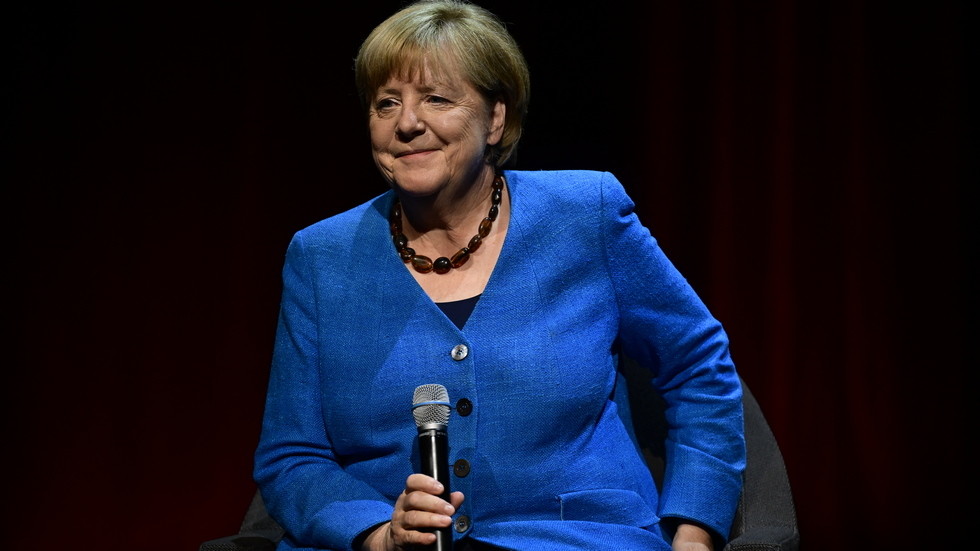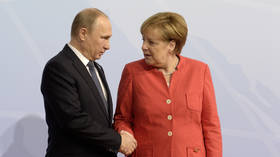
The Cold War won’t really be over until Russia has contributed to European security architecture, the former German Chancellor said

Former German Chancellor Angela Merkel speaking on stage at the Berliner Ensemble theatre in Berlin on June 7, 2022. © John MACDOUGALL / AFP
Sustainable peace in Europe may only be achieved if Russia is part of it, former German Chancellor Angela Merkel said on Thursday.
Speaking during the 77th anniversary of the German newspaper ‘Suddeutsche Zeitung,’ Merkel explained that while the West has been adamant in its support for Ukraine as the nation remains locked in conflict with Russia, it should also keep its mind open about what might seem as “unthinkable” now – Moscow’s future role in Europe’s affairs.
She stressed that “a future European security architecture within international law will meet the requirements” only if it involves Russia. “As long as we haven’t achieved that, the Cold War is not really over either,” she added.
Merkel described February 24 – the day Russia launched its military campaign in Ukraine – as a “turning point,” adding that statements made by various parties to the conflict should be taken “seriously and not to be classified as a bluff from the start.”

Read more
She was apparently referring to recent comments made by Russian President Vladimir Putin, who signaled that Moscow would use “all means to defend Russia and our people” if its territorial integrity was threatened. He also warned the West that those who use nuclear blackmail against Russia “should know that the wind rose can turn around.”
Merkel earlier urged the Western world to take Putin and his words seriously, arguing that such an approach is “by no means a sign of weakness,” but rather “a sign of political wisdom.”
She also noted that former German chancellor Helmut Kohl, who before his death, was widely regarded as her political mentor, would have kept an open mind about “how relations to and with Russia could one day be redeveloped” after hostilities in Ukraine end.
Such a stance, however, did not sit well with Ukrainian officials. Last week, Andrey Melnik, Kiev’s outgoing ambassador to Berlin, called Merkel’s attitude towards Russia and its role in European security “almost perverse.”




